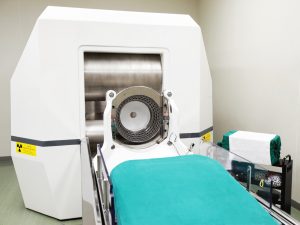If your GP has referred you to a neurosurgeon you may feel anxious or apprehensive. That’s completely understandable – most patients feel like this! We do our best to help you feel more at ease by explaining your condition, answering your questions and reassuring you about what’s involved in your treatment.
Understanding what we do and why you’ve been sent to see us
What is a neurosurgeon?
Neurosurgeons are highly trained medical specialists who diagnose and treat conditions affecting the brain, spine and nervous system. We perform surgeries to address clinical concerns such as:
- Brain tumours.
- Spinal disc problems.
- Intracranial aneurysms.
- Traumatic brain or spinal injuries.
- Other conditions we treat
But being referred to a neurosurgeon doesn’t necessarily mean you’ll need an operation. We also provide non-surgical care and collaborate with other specialists to develop a comprehensive treatment plan to address your symptoms and improve your quality of life.
What’s the difference between a neurologist and a neurosurgeon?
While both neurologists and neurosurgeons specialise in treating your brain, spine and nervous system, we bring different types of expertise.
Neurologists are doctors who focus on diagnosing and managing neurological disorders through medication, therapy or lifestyle modifications. You might see a neurologist if you have migraines, multiple sclerosis or epilepsy, for example.
Neurosurgeons are surgeons who perform surgeries and other interventions for structural issues within your brain, spine and nervous system, such as removing tumours or stabilising the spine.
If you’re unsure why you’ve been referred to a neurosurgeon, your referring doctor can clarify how our expertise aligns with your condition.
Why have I been referred to a neurosurgeon?
Usually, you’re referred to a neurosurgeon if you have symptoms suggesting the need for a specialist assessment. Common reasons for a referral to a neurosurgeon include:
- Persistent neurological symptoms like numbness, weakness or seizures.
- Imaging findings (e.g. MRI or CT scans) indicating abnormalities in your brain or spine.
- Conditions requiring surgical evaluation, such as herniated discs or brain tumours.
Making the most of your time with us
Preparing for your appointment
Before your visit, you’ll need to:
- Obtain a referral from your GP or another specialist: This essential letter helps you claim a Medicare rebate and provides us with information about your health and your reason for coming to see us.
- Ensure we can see any scans: If you’ve already had an MRI or other scan, please tell our staff where they were done so we can access them online. If you’ve got a hard copy, please bring it with you on the day.
- Complete any paperwork we send: We may send you a digital form to complete before your appointment. If not, aim to arrive 10 minutes early to complete the form on arrival.
- Check location and travel details: Our specialists consult from several different locations so please check where your appointment will be then work out how you’ll get there, allowing ample time for travel and parking.
- Let us know if you need an interpreter: We can arrange this at no cost to you provided we’re notified in advance.
What to bring with you
- Medicare card, health insurance details, and pension or concession cards.
- A list of current medications.
- Contact details of other doctors or allied health professionals involved in your care.
- Payment method (Visa, Mastercard, or exact cash).
- Glasses, hearing aids or anything else you need to participate fully in discussions.
- A companion – feel free to bring a trusted friend or family member as they’re often able to help you feel comfortable, take notes or remind you of topics you want to discuss.
During the appointment
When you arrive, our reception staff will welcome you. We aim to run on time but sometimes we get behind because we’re with a patient who needs extra time. We appreciate your patience as we strive to give each patient the care they need.
Once it’s time for your appointment, your neurosurgeon will introduce himself/herself and welcome you into the consultation room. He/she will ask about your reasons for being there and will then:
- Review your medical history.
- Look at any scans or test results.
- May examine you.
- Make a diagnosis (if possible) and discuss potential surgical or non-surgical treatments.
We encourage you to make the most of this appointment! Talk about your worries and concerns. Ask your questions. Find out what you need to know. We’re here to give you as much clarity and reassurance as we can.
Payment
Payment is due at the end of your appointment before you leave the clinic. We accept Visa and Mastercard.
Next steps
We’re proud of our exceptional clinical team, which includes 10 neurosurgeons, 5 junior doctors and a nurse practitioner. They’re supported by 15 administrative staff who ensure your visit runs smoothly. Please enquire about an appointment.
Disclaimer
All information is general and is not intended to be a substitute for professional medical advice. Macquarie Neurosurgery and Spine can consult with you to confirm if a particular treatment or procedure is right for you. Any surgical or invasive procedure carries risks. A second opinion may help you decide if a particular treatment is right for you.
References
- Healthdirect, The role of a neurologist: https://www.healthdirect.gov.au/neurologist [Accessed 26 November 2024]
- Healthdirect, The role of a neurosurgeon: https://www.healthdirect.gov.au/neurosurgeon# [Accessed 26 November 2024]






